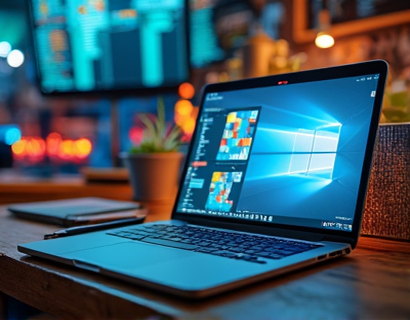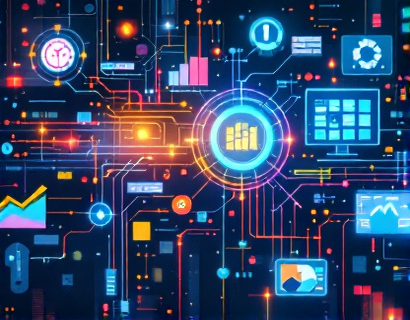Streamline Event Planning and Execution: A Guide to Next-Gen Event Management Tools
In the fast-paced world of event planning, efficiency and effectiveness are paramount. The ability to seamlessly manage every aspect of an event, from registration to execution, can make all the difference between a mediocre gathering and a truly unforgettable experience. This guide delves into the world of next-generation event management tools, exploring how advanced planning and real-time analytics can transform your events. By leveraging these tools, event organizers can maximize their event's potential, ensuring that every detail is meticulously handled and every moment is memorable.
Understanding the Challenges of Event Planning
Event planning is a complex process that involves coordinating multiple elements, each with its own set of challenges. From selecting the right venue to managing guest registrations, every task requires careful attention and precise execution. Traditional methods often rely on manual processes, which can be time-consuming and prone to errors. This is where modern event management tools come into play, offering solutions that streamline workflows, enhance communication, and provide valuable insights.
Registration Management: Simplifying the First Step
The registration process is often the first point of contact between potential attendees and your event. Efficient registration management is crucial to ensure a smooth experience from the start. Next-gen tools offer online registration platforms that allow attendees to sign up easily, often with the option to pay fees directly through the system. These platforms can handle multiple registration types, such as early bird discounts, group bookings, and VIP passes. By automating the registration process, organizers can reduce manual data entry, minimize errors, and provide real-time updates to attendees.
Moreover, these tools can integrate with calendars and email systems, sending automatic confirmation emails and reminders to registered attendees. This not only keeps participants informed but also helps build excitement leading up to the event. Some advanced systems even offer self-service portals where attendees can manage their registrations, view schedules, and access important event information.
Attendee Tracking: Enhancing Engagement and Experience
Once attendees arrive at the event, continuous engagement is key to ensuring a successful experience. Next-gen event management tools provide robust attendee tracking capabilities, allowing organizers to monitor participation and interaction throughout the event. These tools can track attendee movements, session attendance, and even social media activity, providing a comprehensive view of how guests are engaging with the event.
By analyzing this data, organizers can identify popular sessions, busy areas, and potential bottlenecks, enabling them to make real-time adjustments to optimize the flow of the event. For instance, if a particular session is underattended, organizers can send targeted notifications to encourage more participation. Similarly, identifying overcrowded areas can help in redistributing attendees to less busy zones, ensuring a more balanced experience.
Real-Time Analytics: Making Data-Driven Decisions
Real-time analytics is one of the most powerful features of modern event management tools. These systems collect and process data from various sources, providing organizers with actionable insights at a glance. Key metrics such as attendance rates, session popularity, and attendee demographics can be monitored in real-time, allowing for immediate decision-making.
For example, if a session is not meeting expectations, organizers can quickly adjust the content or format to better engage the audience. Real-time analytics can also help in identifying trends and patterns, which can be invaluable for future events. By understanding what works and what doesn't, organizers can refine their strategies and continuously improve the overall event experience.
Seamless Communication: Keeping Everyone Informed
Effective communication is essential for the smooth execution of any event. Next-gen tools offer integrated communication solutions that ensure all stakeholders are kept in the loop. From organizers to speakers, volunteers, and attendees, these platforms facilitate seamless information exchange.
Event organizers can use built-in messaging systems to send updates, reminders, and important announcements to specific groups or the entire attendee list. Speakers and performers can receive real-time notifications about schedule changes or technical requirements. Attendees can receive personalized messages with event schedules, maps, and other relevant information, enhancing their overall experience.
Additionally, these tools often support multi-channel communication, allowing organizers to use email, SMS, and in-app notifications to reach participants where they are most accessible. This ensures that critical information is delivered promptly and effectively, reducing the risk of miscommunication.
Technical Support and Integration: Ensuring Smooth Operations
While advanced tools offer numerous benefits, the success of an event also depends on the reliability and support provided by the technology. Next-gen event management platforms typically offer robust technical support, ensuring that any issues are resolved quickly and efficiently. This is crucial for maintaining the flow of the event and minimizing disruptions.
Integration with other tools and systems is another key feature. Modern event management tools can integrate with a wide range of third-party applications, such as CRM systems, marketing automation tools, and social media platforms. This integration enables a more cohesive and efficient workflow, allowing organizers to manage multiple aspects of the event from a single dashboard.
For instance, integrating with a CRM system can help organizers manage relationships with attendees, sponsors, and partners more effectively. Marketing automation tools can be used to create targeted campaigns and track their performance, optimizing promotional efforts. By streamlining these processes, organizers can focus more on the creative and strategic aspects of event planning.
Sustainability and Accessibility: Modern Event Considerations
In today's world, sustainability and accessibility are increasingly important considerations for event planners. Next-gen tools can help organizers meet these goals by providing features that promote eco-friendly practices and inclusive participation.
For sustainability, tools can assist in reducing paper usage by offering digital programs, agendas, and signage. Virtual and hybrid event options can also be facilitated through these platforms, reducing the carbon footprint associated with travel and physical infrastructure. Additionally, some tools offer carbon offset calculators to help organizers quantify and mitigate their environmental impact.
Accessibility is another critical aspect, ensuring that events are inclusive for all attendees. Next-gen tools can support accessibility by providing features such as live captioning, sign language interpretation, and screen reader compatibility. These features ensure that attendees with disabilities can fully participate and enjoy the event, aligning with the growing demand for inclusive events.
Post-Event Analysis: Learning and Improving
The benefits of advanced event management tools extend beyond the event itself. Post-event analysis is a crucial step in evaluating the success of the event and identifying areas for improvement. Next-gen tools provide comprehensive reporting and analytics features that allow organizers to review key metrics and gather feedback from attendees.
Detailed reports can highlight attendance trends, session performance, and overall attendee satisfaction. This data can be used to generate insights and actionable recommendations for future events. Additionally, post-event surveys can be easily distributed through the platform, collecting valuable feedback directly from attendees. This feedback can inform decisions on content, logistics, and marketing strategies, ensuring continuous improvement.
Conclusion: Transforming Events with Advanced Tools
In conclusion, next-generation event management tools offer a suite of advanced features that can significantly enhance the planning and execution of events. From streamlined registration and real-time attendee tracking to comprehensive analytics and seamless communication, these tools provide organizers with the means to deliver exceptional experiences. By embracing these technologies, event planners can transform their events into memorable successes, maximizing potential and setting new standards in the industry.
As the event landscape continues to evolve, the importance of leveraging advanced tools cannot be overstated. By staying ahead of the curve and adopting innovative solutions, organizers can ensure that their events not only meet but exceed expectations, leaving a lasting impact on all who attend.











































